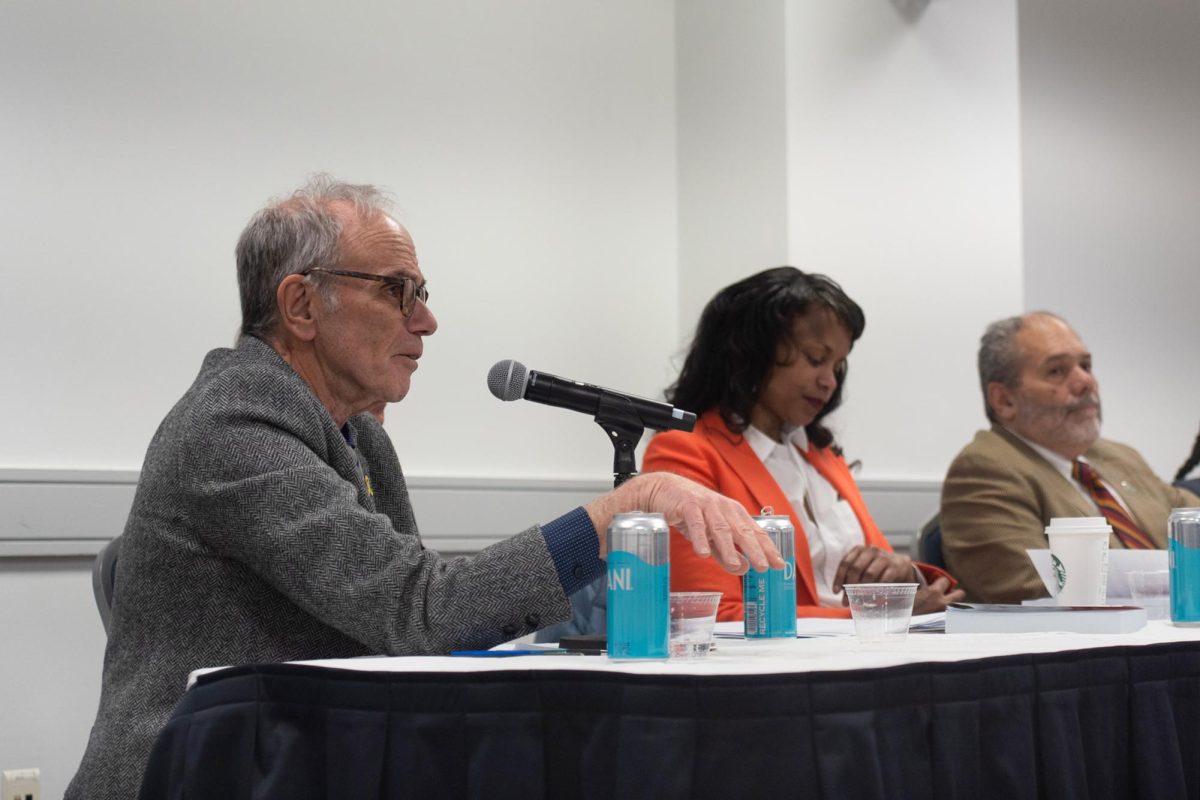
This post was written by Hatchet reporter Aaron Galloway.
Metropolitan Police Department Commander Melvin Gresham and Lieutenant Zenobia McBride spoke to Foggy Bottom community members Tuesday night about neighbors’ safety and well-being concerns.
During the meeting, which was held in the School Without Walls, the officers covered topics including party noise levels and MPD officer trainings.
Here are some of the main concerns from neighbors who attended the meeting:
1. Student noise complaints
Some attendees said they were concerned about noise in buildings on the Foggy Bottom Campus. Gresham assured the audience that MPD officers are enforcing noise ordinances in the area.
Foggy Bottom Association President Marina Streznewski asked about policies to break up loud parties during the day, noting that the laws only addressed noise levels at night.
Gresham said there are no laws against loud noises from daytime parties, and requests by police to shut off music during the day can’t be legally enforced.
“We can ask the host of the parties as a courtesy to turn it down, but in terms of enforcement, no,” Gresham said. “It is unfortunate, but there’s nothing we can do.”
2. Countering a shortage
A number of officers have recently retired from MPD, but that has not posed significant problems for the force, Gresham said. There are currently about 3,800 officers in the department, he said.
The department has dealt with the retirements through an existing senior officers program and allows officers to remain in the force part-time while receiving retirement benefits, Gresham said.
“We don’t really have any staffing shortages because the people who are retiring are actually coming back,” he said. “They may be retired, but they are coming back and enjoying two salaries: a salary from retirement and a salary as a senior police officer. “
MPD is also hiring up to 30 new officers per month, Gresham added.
“These are very young officers,” Gresham said. “But everyday we’re in the process of hiring new officers.”
3. Implicit bias training
Streznewski later asked what MPD is doing about implicit bias within the police force. She did not mention a particular event in D.C. or nationally, but police shootings of unarmed black men have come to the forefront of national conversations about policing standards.
Gresham said MPD implemented a federal guideline in 2006 to focus on officers’ behavior on duty.
“Well, it’s something that we take very seriously. I would say that our department is probably more trained than other departments,” Gresham said. “I think it made us a better agency.”
The department has systems in place to monitor officers and ensure that unethical behavior is not the standard, he added.
“Police officers are just like any other profession, and you’re certainly going to have people that shouldn’t be wearing a badge and uniform. It’s going to happen,” he said. “We do have systems in place where this activity is closely monitored, and if there is a pattern, we will address it.”






